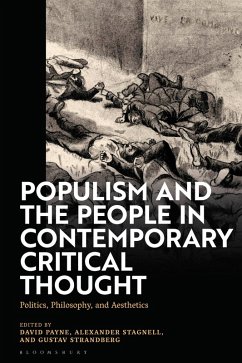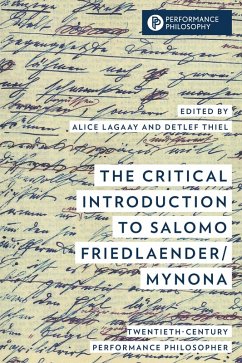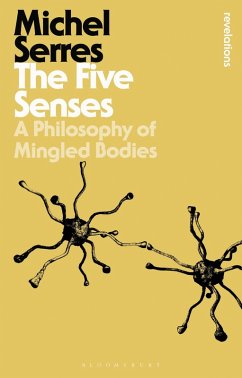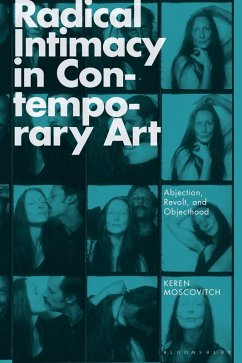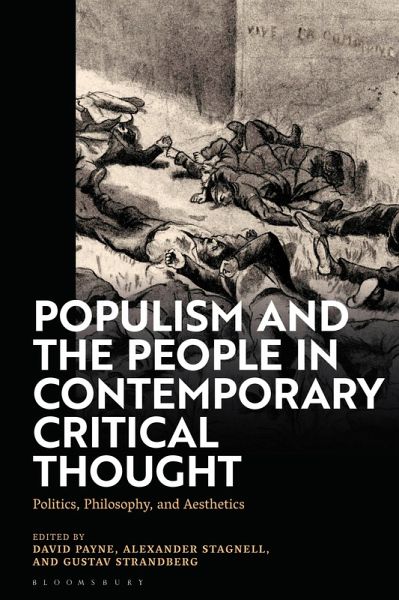
Populism and The People in Contemporary Critical Thought (eBook, PDF)
Politics, Philosophy, and Aesthetics
Redaktion: Stagnell, Alexander; Strandberg, Gustav; Payne, David
Versandkostenfrei!
Sofort per Download lieferbar
24,95 €
inkl. MwSt.
Weitere Ausgaben:

PAYBACK Punkte
12 °P sammeln!
Is populism the unsurpassable horizon of our own time or is it a temptation that should at all costs be resisted? Who, and to what end, does the jargon of populism serve? To answer these questions, Alexander Stagnell, Gustav Strandberg, David Payne, and their contributors trace the socio-historical significance of the concept of 'The People' in western philosophy and its relationship to the trend of populist politics today. Bringing together scholars from the fields of aesthetics, critical, cultural and political theory, philosophy, and rhetoric, this volume critically explores the issues faci...
Is populism the unsurpassable horizon of our own time or is it a temptation that should at all costs be resisted? Who, and to what end, does the jargon of populism serve? To answer these questions, Alexander Stagnell, Gustav Strandberg, David Payne, and their contributors trace the socio-historical significance of the concept of 'The People' in western philosophy and its relationship to the trend of populist politics today. Bringing together scholars from the fields of aesthetics, critical, cultural and political theory, philosophy, and rhetoric, this volume critically explores the issues facing contemporary society today. With an international team of authors, each chapter speaks to a range of contexts recently affected by populism today, including Sweden, Brazil, Germany, Austria, France, and the UK. As political and economic establishments face a crisis of legitimacy, Populism and The People in Contemporary Critical Thought reveals the shaky foundations on which the concept of 'The People' rests. Engaging with critical theory, feminist theory, Marxism, phenomenology, and psychoanalysis, this collection highlights how 'The People' comes to stand in for both belonging and exclusion, enabling us to see the uses and abuses of such terminology as pressing theoretical and political concerns.




